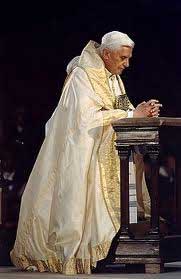[powerpress]
O God,
who by the Immaculate Conception
of the Blessed Virgin Mary,
did prepare a worthy dwelling place for Your Son,
we beseech You that,
as by the foreseen death of this, Your Son,
You did preserve Her from all stain,
so too You would permit us,
purified through Her intercession,
to come unto You.
Through the same Lord Jesus Christ,
Your Son, who lives and reigns with You
in the unity of the Holy Spirit,
God, world without end.
Amen.
Glorious and immortal Queen of Heaven,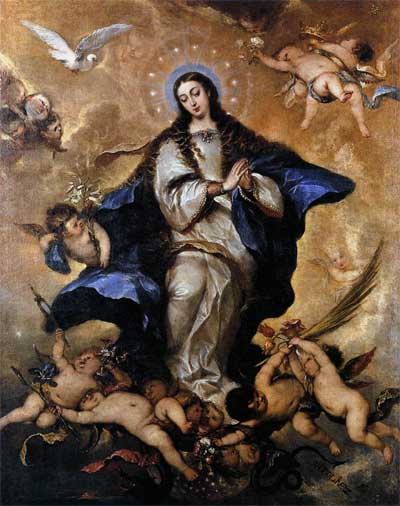
we profess our firm belief in your Immaculate Conception
preordained for you in the merits of your Divine Son.
We rejoice with you in your Immaculate Conception.
To the one ever-reigning God,
Father, Son, and Holy Spirit,
three in one Person,
one in nature,
we offer thanks for your blessed Immaculate Conception.
O Mother of the Word mad Flesh,
listen to our petition as we ask
this special grace during this novena…
(State your intention here…)
O Mary of the Immaculate Conception,
Mother of Christ,
you had influence with your Divine Son while upon this earth;
you have the same influence now in heaven.
Pray for us
and obtain for us from him
the granting of my petition if it be the Divine Will.
Amen.
For the complete 9 day novena visit the Discerning Hearts:
The Immaculate Conception Novena page
This entry was posted on Friday, December 5th, 2014 at 12:37 am
You can follow any responses to this entry through the RSS 2.0 feed.
Episode 33- The Holy Rule of St. Benedict: A Spiritual Path for Today’s World with Fr. Mauritius Wilde O.S.B., 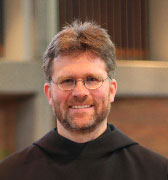 PhD.
PhD.
“The Life of St. Benedict pt 6”
We continue our conversation on the life of St. Benedict by using the biography penned by St. Gregory the Great.  In this episode St. Benedict deals with serious temptation.  If God calls you to restrain from something for the sake of His Kingdom, for the greater Love, this can include suffering and tension. We often try to avoid that.  St. Benedict desires to  be free and detached.  So Benedict takes action in order to be open to  grace and the love of God.   His method in this story may seem archaic to some, but it shouldn’t stop us from examining how we deal with temptation.
[powerpress]
From the Life of Our Most Holy Father St. Benedict by St. Gregory the Great:
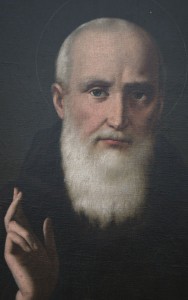
 CHAPTER I.
The holy man being on a certain day alone, the tempter was at hand; for a little black bird, commonly called an ousel, began to fly about his face, and that so near as the holy man, if he would. might have taken it with his hand; but no sooner had he made the sign of the cross than the bird vanished. When presently so great a carnal temptation assailed him, that before the holy man had never felt the like. For the remembrance of a woman which some time he had seen, was so lively represented to his fancy by the wicked spirit, and so vehemently did her image inflame his breast with lustful desires, that almost overcome by pleasure, he was determining to leave the wilderness. But suddenly assisted with divine
grace he came to himself, and, seeing near him a thicket full of nettles and briars, he threw off his garments and cast himself naked into the midst of those sharp thorns and nettles, where he rolled himself so long, that, when he rose up, all his body was pitifully rent; thus by the wounds of his flesh he cured those of his soul, by turning pleasure into pain; and by the vehemence of outward torments he extinguished the unlawful flame which burnt within overcoming sin by changing the fire. After which time, as he himself related to his disciples, he was so free from the like temptation, that he never felt any such motion.
 For more information about the ministry of the the Missionary Benedictines of Christ the King Priory in Schuyler, Nebraska visit here:
For more information about the ministry of the the Missionary Benedictines of Christ the King Priory in Schuyler, Nebraska visit here:
This entry was posted on Thursday, December 4th, 2014 at 1:30 pm
You can follow any responses to this entry through the RSS 2.0 feed.
Dr. Matthew Bunson discusses the life, times and teachings of St. John Damascene pt 1
-
Born: 676 AD, Damascus, Syria
-
Died: December 4, 749 AD, Mar Saba, Jordan
From Vatican.va, an excerpt from the teachings of Pope Benedict XVI General Audience 2008
Today I should like to speak about John Damascene, a personage of prime importance in the history of Byzantine Theology, a great Doctor in the history of the Universal Church. Above all he was an eyewitness of the passage from the Greek and Syrian Christian cultures shared by the Eastern part of the Byzantine Empire, to the Islamic culture, which spread through its military conquests in the territory commonly known as the Middle or Near East. John, born into a wealthy Christian family, at an early age assumed the role, perhaps already held by his father, of Treasurer of the Caliphate. Very soon, however, dissatisfied with life at court, he decided on a monastic life, and entered the monastery of Mar Saba, near Jerusalem. This was around the year 700. He never again left the monastery, but dedicated all his energy to ascesis and literary work, not disdaining a certain amount of pastoral activity, as is shown by his numerous homilies. His liturgical commemoration is on the 4 December. Pope Leo XIII proclaimed him Doctor of the Universal Church in 1890.
In the East, his best remembered works are the three Discourses against those who calumniate
which were condemned after his death by the iconoclastic Council of Hieria (754). These discourses, however, were also the fundamental grounds for his rehabilitation and canonization on the part of the Orthodox Fathers summoned to the Council of Nicaea (787), the Seventh Ecumenical Council. In these texts it is possible to trace the first important theological attempts to legitimise the veneration of sacred images, relating them to the mystery of the Incarnation of the Son of God in the womb of the Virgin Mary.
John Damascene was also among the first to distinguish, in the cult, both public and private, of the Christians, between worship (latreia), and veneration (proskynesis): the first can only be offered to God, spiritual above all else, the second, on the other hand, can make use of an image to address the one whom the image represents. Obviously the Saint can in no way be identified with the material of which the icon is composed. This distinction was immediately seen to be very important in finding an answer in Christian terms to those who considered universal and eternal the strict Old Testament prohibition against the use of cult images. This was also a matter of great debate in the Islamic world, which accepts the Jewish tradition of the total exclusion of cult images. Christians, on the other hand, in this context, have discussed the problem and found a justification for the veneration of images. John Damascene writes, “In other ages God had not been represented in images, being incorporate and faceless. But since God has now been seen in the flesh, and lived among men, I represent that part of God which is visible. I do not venerate matter, but the Creator of matter, who became matter for my sake and deigned to live in matter and bring about my salvation through matter. I will not cease therefore to venerate that matter through which my salvation was achieved. But I do not venerate it in absolute terms as God! How could that which, from non-existence, has been given existence, be God?… But I also venerate and respect all the rest of matter which has brought me salvation, since it is full of energy and Holy graces. Is not the wood of the Cross, three times blessed, matter?… And the ink, and the most Holy Book of the Gospels, are they not matter? The redeeming altar which dispenses the Bread of life, is it not matter?… And, before all else, are not the flesh and blood of Our Lord matter? Either we must suppress the sacred nature of all these things, or we must concede to the tradition of the Church the veneration of the images of God and that of the friends of God who are sanctified by the name they bear, and for this reason are possessed by the grace of the Holy Spirit. Do not, therefore, offend matter: it is not contemptible, because nothing that God has made is contemptible” (cf. Contra imaginum calumniatores, I, 16, ed. Kotter, pp. 89-90). We see that as a result of the Incarnation, matter is seen to have become divine, is seen as the habitation of God. It is a new vision of the world and of material reality. God became flesh and flesh became truly the habitation of God, whose glory shines in the human Face of Christ. Thus the arguments of the Doctor of the East are still extremely relevant today, considering the very great dignity that matter has acquired through the Incarnation, capable of becoming, through faith, a sign and a sacrament, efficacious in the meeting of man with God. John Damascene remains, therefore, a privileged witness of the cult of icons, which would come to be one of the most distinctive aspects of Eastern spirituality up to the present day. It is, however, a form of cult which belongs simply to the Christian faith, to the faith in that God who became flesh and was made visible. The teaching of Saint John Damascene thus finds its place in the tradition of the universal Church, whose sacramental doctrine foresees that material elements taken from nature can become vehicles of grace by virtue of the invocation (epiclesis) of the Holy Spirit, accompanied by the confession of the true faith.
For more visit Vatican.va
Dr. Matthew Bunson, Senior Fellow of the St. Paul Center for Biblical Theology, is one of the United States’ leading authorities on the papacy and the Church.
His books include: The Encyclopedia of Catholic History; The Encyclopedia of Saints; Papal Wisdom; All Shall Be Well; Encyclopedia of the Roman Empire; and The Angelic Doctor: The Life and World of St. Thomas Aquinas; The Pope Encyclopedia; We Have a Pope! Benedict XVI, the first Catholic biography of the Holy Father in the English language; the Encyclopedia of U.S. Catholic History; Pope Francis. His also the editor of OSV’s “The Catholic Answer” magazine.
Tags: John Damascene, matthew bunson
This entry was posted on Thursday, December 4th, 2014 at 12:41 pm
You can follow any responses to this entry through the RSS 2.0 feed.
[powerpress]
O God,
who by the Immaculate Conception
of the Blessed Virgin Mary,
did prepare a worthy dwelling place for Your Son,
we beseech You that,
as by the foreseen death of this, Your Son,
You did preserve Her from all stain,
so too You would permit us,
purified through Her intercession,
to come unto You.
Through the same Lord Jesus Christ,
Your Son, who lives and reigns with You
in the unity of the Holy Spirit,
God, world without end.
Amen.
Glorious and immortal Queen of Heaven,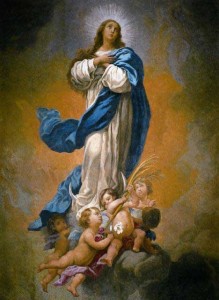
we profess our firm belief in your Immaculate Conception
preordained for you in the merits of your Divine Son.
We rejoice with you in your Immaculate Conception.
To the one ever-reigning God,
Father, Son, and Holy Spirit,
three in one Person,
one in nature,
we offer thanks for your blessed Immaculate Conception.
O Mother of the Word mad Flesh,
listen to our petition as we ask
this special grace during this novena…
(State your intention here…)
O Mary of the Immaculate Conception,
Mother of Christ,
you had influence with your Divine Son while upon this earth;
you have the same influence now in heaven.
Pray for us
and obtain for us from him
the granting of my petition if it be the Divine Will.
Amen.
For the complete 9 day novena visit the Discerning Hearts:
The Immaculate Conception Novena page
This entry was posted on Thursday, December 4th, 2014 at 9:22 am
You can follow any responses to this entry through the RSS 2.0 feed.
What is old is new again. That’s why the Fathers are so important, they’ve done battle with the heresies that continue to plaque our Church even today. Also in his writings you can see the “Theology of the Body”…1800 years or so before we hear from Pope John Paul II. Faith and Reason can live in harmony…then knew it then and we can be confident about that now.
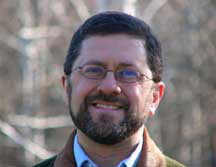 Take a listen to Mike Aquilna, who does a great job giving us the life of this early, early father of the Church, Clement of Alexandria.
Take a listen to Mike Aquilna, who does a great job giving us the life of this early, early father of the Church, Clement of Alexandria.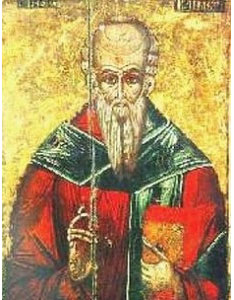
[powerpress]
Here in a very small nutshell is an overview of St. Clement of Alexandria –
from wikipedia –
Titus Flavius Clemens (c.150 – c. 215), known as Clement of Alexandria (to distinguish him from Clement of Rome), was a Christian theologian and the head of the noted Catechetical School of Alexandria. Clement is best remembered as the teacher of Origen. He united Greek philosophical traditions with Christian doctrine and valued gnosis that with communion for all people could be held by common Christians specially chosen by God.Though he constantly opposes the concept of gnosis as defined by the Gnostics, he used the term “gnostic” for Christians who had attained the deeper teaching of the Logos.He developed a Christian Platonism. He presented the goal of Christian life as deification, identified both as Platonism’s assimilation into God and the biblical imitation of God.
Like Origen, he arose from Alexandria’s Catechetical School and was well versed in pagan literature.Origen succeeded Clement as head of the school.Alexandria had a major Christian community in early Christianity, noted for its scholarship and its high-quality copies of Scripture.
Clement is counted as one of the early Church Fathers. He advocated a vegetarian diet and claimed that the apostles Peter, Matthew, and James the Just were vegetarians. – wikipedia
Great trilogy of St. Clement of Alexandria
The trilogy into which Clement’s principal remains are connected by their purpose and mode of treatment is composed of:
- the Protrepticus (“Exhortation to the Greeks”)
- the Paedagogus (“Instructor”)
- the Stromata (“Miscellanies”)
The first book deals with the religious basis of Christian morality, the second and third with the individual cases of conduct.
Tags: alexanderia, Church, clement of alexandria, early church fathers, faith and reason, father, father of the church, fathers mike, fathers of the church, gnostics, heresy, mike aquilina, Mike Aquilna
This entry was posted on Thursday, December 4th, 2014 at 8:26 am
You can follow any responses to this entry through the RSS 2.0 feed.
[powerpress]
A commentary on the Diatessaron by St Ephrem
Keep watch: He is to come again
To prevent his disciples from asking the time of his coming, Christ said: About that hour no one knows, neither the angels nor the Son. It is not for you to know times or moments. He has kept those things hidden so that we may keep watch, each of us thinking that he will come in our own day. If he had revealed the time of his coming, his coming would have lost its savour: it would no longer be an object of yearning for the nations and the age in which it will be revealed. He promised that he would come but did not say when he would come, and so all generations and ages await him eagerly.
Though the Lord has established the signs of his coming, the time of their fulfilment has not been plainly revealed. These signs have come and gone with a multiplicity of change; more than that, they are still present. His final coming is like his first. As holy men and prophets waited for him, thinking that he would reveal himself in their own day, so today each of the faithful longs to welcome him in his own day, because Christ has not made plain the day of his coming.
He has not made it plain for this reason especially, that no one may think that he whose power and dominion rule all numbers and times is ruled by fate and time. He described the signs of his coming; how could what he has himself decided be hidden from him? Therefore, he used these words to increase respect for the signs of his coming, so that from that day forward all generations and ages might think that he would come again in their own day.
Keep watch; when the body is asleep nature takes control of us, and what is done is not done by our will but by force, by the impulse of nature. When deep listlessness takes possession of the soul, for example, faint-heartedness or melancholy, the enemy overpowers it and makes it do what it does not will. The force of nature, the enemy of the soul, is in control.When the Lord commanded us to be vigilant, he meant vigilance in both parts of man: in the body, against the tendency to sleep; in the soul, against lethargy and timidity. As Scripture says: Wake up, you just, and I have risen, and am still with you; and again, Do not lose heart. Therefore, having this ministry, we do not lose heart.
Excerpts from the English translation of The Liturgy of the Hours (Four Volumes) © 1974, International Commission on English in the Liturgy Corporation. All rights reserved.
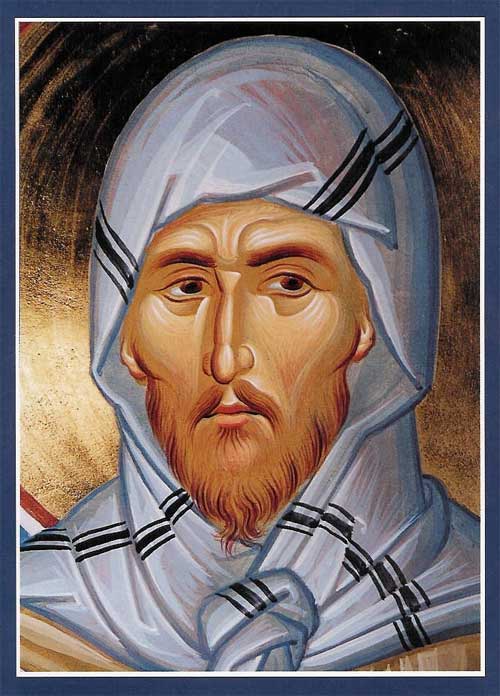
This entry was posted on Thursday, December 4th, 2014 at 1:51 am
You can follow any responses to this entry through the RSS 2.0 feed.
[powerpress]
From The Statement of Faith by St. John Damascene, priest
You have called me, Lord, to minister to your people
O Lord, you led me from my father’s loins and formed me in my mother’s womb. You brought me, a naked babe, into the light of day, for nature’s laws always obey your commands.
By the blessing of the Holy Spirit, you prepared my creation and my existence, not because man willed it or flesh desired it, but by your ineffable grace. The birth you prepared for me was such that it surpassed the laws of our nature. You sent me forth into the light by adopting me as your son and you enrolled me among the children of your holy and spotless Church.
You nursed me with the spiritual milk of your divine utterances. You kept me alive with the solid food of the body of Jesus Christ, your only-begotten Son for our redemption. And he undertook the task willingly and did not shrink from it. Indeed, he applied himself to it as though destined for sacrifice, like an innocent lamb. Although he was God, he became man, and in his human will, became obedient to you, God his Father, unto death, even death on a cross.
In this way you have humbled yourself, Christ my God, so that you might carry me, your stray sheep, on your shoulders. You let me graze in green pastures, refreshing me with the waters of orthodox teaching at the hands of your shepherds. You pastured these shepherds, and now they in turn tend your chosen and special flock. Now you have called me, Lord, by the hand of your bishop to minister to your people. I do not know why you have done so, for you alone know that. Lord, lighten the heavy burden of the sins through which I have seriously transgressed. Purify my mind and heart. Like a shining lamp, lead me along the straight path. When I open my mouth, tell me what I should say. By the fiery tongue of your Spirit make my own tongue ready. Stay with me always and keep me in your sight.
Lead me to pastures, Lord, and graze there with me. Do not let my heart lean either to the right or to the left, but let your good Spirit guide me along the straight path. Whatever I do, let it be in accordance with your will, now until the end.
And you, O Church, are a most excellent assembly, the noble summit of perfect purity, whose assistance comes from God. You in whom God lives, receive from us an exposition of the faith that is free from error, to strengthen the Church, just as our Fathers handed it down to us.
Excerpts from the English translation of The Liturgy of the Hours (Four Volumes) © 1974, International Commission on English in the Liturgy Corporation. All rights reserved.
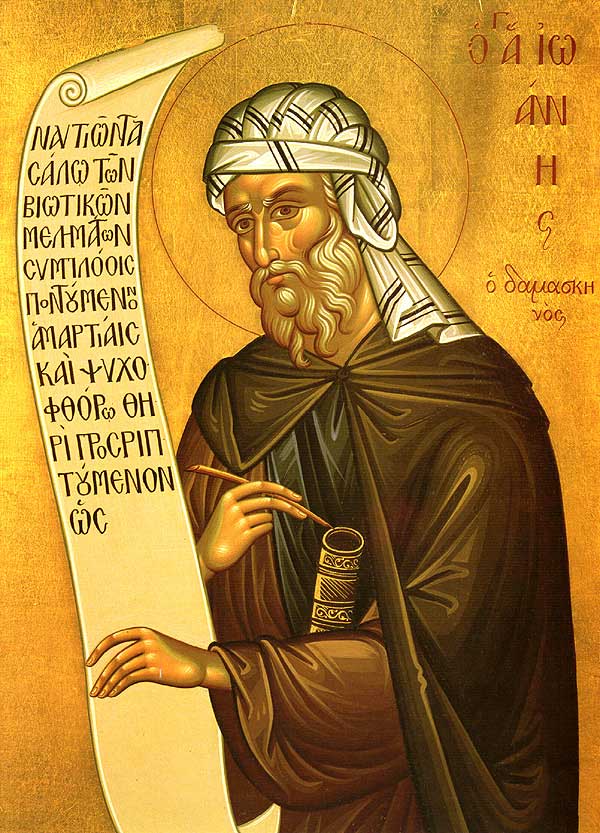
This entry was posted on Thursday, December 4th, 2014 at 12:44 am
You can follow any responses to this entry through the RSS 2.0 feed.
[powerpress]
Please visit the Discerning Hearts Our Lady of Guadalupe page for the text and audio for the remaining days.
Day Two
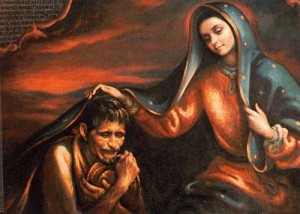 Mary, Mother of divine grace, you appeared to Juan
Mary, Mother of divine grace, you appeared to Juan
Diego standing on the moon and robed in a royal mantle adorned with stars, showing that you are the Queen of Heaven and Earth, yet far from a haughty or distant Queen. With hands folded in supplication, eyes cast downward in humility and compassion, you did not ask for a temple where you could be honored, but one where you could attend to the “weeping and sorrows of … all the people of this land, and of the various peoples who  love me….†May all who are sorrowing due to abuse, violence, exploitation, neglect, and all sins against the dignity of life, fly to you, Mother, for comfort and hope.
Our Father … Hail Mary … Glory be …
Tags: catholic, catholic podcast, catholic prayer, cathollc spirituality, Mother of divine grace, Queen of Heaven and Earth
This entry was posted on Thursday, December 4th, 2014 at 12:05 am
You can follow any responses to this entry through the RSS 2.0 feed.
[powerpress]
From a sermon by Saint Bernard, abbot
The Three Comings of the Lord
We know that there are three comings of the Lord. The third lies between the other two. It is invisible, while the other two are visible. In the first coming he was seen on earth, dwelling among men; he himself testifies that they saw him and hated him. In the final coming all flesh will see the salvation of our God, and they will look on him whom they pierced. The intermediate coming is a hidden one; in it only the elect see the Lord within their own selves, and they are saved. In his first coming our Lord came in our flesh and in our weakness; in this middle coming he comes in spirit and in power; in the final coming he will be seen in glory and majesty.
In case someone should think that what we say about this middle coming is sheer invention, listen to what our Lord himself ways: If anyone loves me, he will keep my word, and my Father will love him, and we will come to him. There is another passage of Scripture which reads: He who fears God will do good, but something further has been said about the one who loves, that is, that he will keep God’s word. Where is God’s word to be kept? Obviously in the heart, as the prophet says: I have hidden your words in my heart, so that I may not sin against you.
Keep God’s word in this way. Let it enter into your very being, let it take possession of your desires and your whole way of life. Feed on goodness, and your soul will delight in its richness. Remember to eat your bread, or your heart will wither away. Fill your soul with richness and strength.
Because this coming lies between the other two, it is like a road on which we travel from the first coming to the last. In the first, Christ was our redemption; in the last, he will appear as our life; in this middle coming, he is our rest and consolation.
If you keep the word of God in this way, it will also keep you. The Son with the Father will come to you. The great Prophet who will build the new Jerusalem will come, the one who makes all things new. This coming will fulfill what is written: As we have borne the likeness of the earthly man, we shall also bear the likeness of the heavenly man. Just as Adam’s sin spread through all mankind and took hold of all, so Christ, who created and redeemed all, will glorify all, once he takes possession of all.
Excerpts from the English translation of The Liturgy of the Hours (Four Volumes) © 1974, International Commission on English in the Liturgy Corporation. All rights reserved.
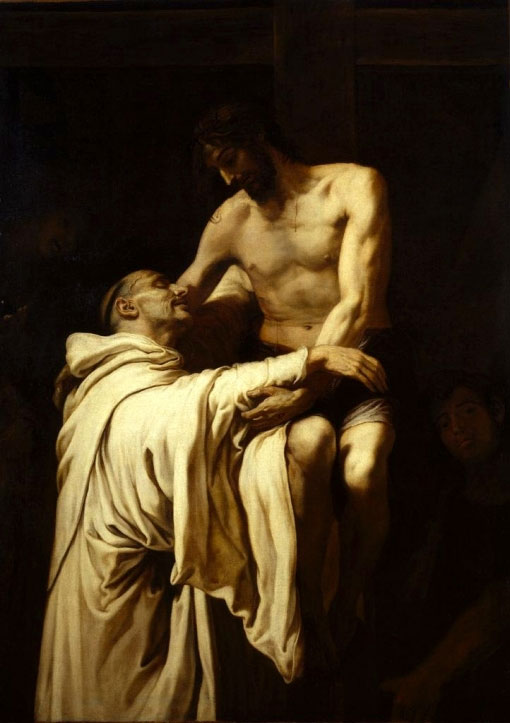
St. Bernard
This entry was posted on Wednesday, December 3rd, 2014 at 3:38 pm
You can follow any responses to this entry through the RSS 2.0 feed.
[powerpress]
A letter from St Francis Xavier to St Ignatius
Woe to me if I do not preach the Gospel
We have visited the villages of the new converts who accepted the Christian religion a few years ago. No Portuguese live here, the country is so utterly barren and poor. The native Christians have no priests. They know only that they are Christians. There is nobody to say Mass for them; nobody to teach them the Creed, the Our Father, the Hail Mary and the Commandments of God’s Law.
I have not stopped since the day I arrived. I conscientiously made the rounds of the villages. I bathed in the sacred waters all the children who had not yet been baptized. This means that I have purified a very large number of children so young that, as the saying goes, they could not tell their right hand from their left. The older children would not let me say my Office or eat or sleep until I taught them one prayer or another. Then I began to understand: “The kingdom of heaven belongs to such as these.â€
I could not refuse so devout a request without failing in devotion myself. I taught them, first the confession of faith in the Father, the Son and the Holy Spirit, then the Apostles’ Creed, the Our Father and Hail Mary. I noticed among them persons of great intelligence. If only someone could educate them in the Christian way of life, I have no doubt that they would make excellent Christians.
Many, many people hereabouts are not becoming Christians for one reason only: there is nobody to make them Christians. Again and again I have thought of going round the universities of Europe, especially Paris, and everywhere crying out like a madman, riveting the attention of those with more learning than charity: “What a tragedy: how many souls are being shut out of heaven and falling into hell, thanks to you!â€
I wish they would work as hard at this as they do at their books, and so settle their account with God for their learning and the talents entrusted to them.
This thought would certainly stir most of them to meditate on spiritual realities, to listen actively to what God is saying to them. They would forget their own desires, their human affairs, and give themselves over entirely to God’s will and his choice. They would cry out with all their heart: Lord, I am here! What do you want me to do? Send me anywhere you like – even to India.
Excerpts from the English translation of The Liturgy of the Hours (Four Volumes) © 1974, International Commission on English in the Liturgy Corporation. All rights reserved.
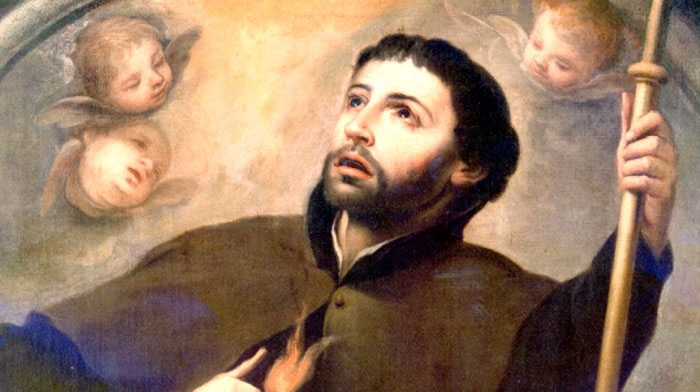
This entry was posted on Wednesday, December 3rd, 2014 at 3:10 pm
You can follow any responses to this entry through the RSS 2.0 feed.
[powerpress]
O God,
who by the Immaculate Conception
of the Blessed Virgin Mary,
did prepare a worthy dwelling place for Your Son,
we beseech You that,
as by the foreseen death of this, Your Son,
You did preserve Her from all stain,
so too You would permit us,
purified through Her intercession,
to come unto You.
Through the same Lord Jesus Christ,
Your Son, who lives and reigns with You
in the unity of the Holy Spirit,
God, world without end.
Amen.
O Lord, who, by the Immaculate Conception of the Virgin Mary,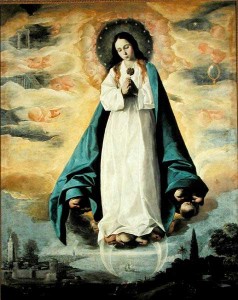
did prepare a fitting dwelling for your Son,
we beseech you that as by the foreseen death of your Son,
you did preserve her from all stain of sin,
grant that through her intercession,
we may be favored with the granting of the grace
that we seek for at this time…
(State your intention here…)
O Mary of the Immaculate Conception,
Mother of Christ,
you had influence with your Divine Son while upon this earth;
you have the same influence now in heaven.
Pray for us
and obtain for us from him
the granting of my petition if it be the Divine Will.
Amen.
For the complete 9 day novena visit the Discerning Hearts:
The Immaculate Conception Novena page
This entry was posted on Wednesday, December 3rd, 2014 at 2:19 pm
You can follow any responses to this entry through the RSS 2.0 feed.
[powerpress]
Please visit the Discerning Hearts Our Lady of Guadalupe page for the text and audio for the remaining days.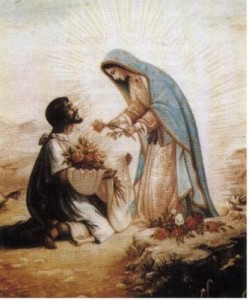
Pray to Our Lady of Guadalupe
(Pope John Paul II, January 25, 1979)
O Immaculate Virgin, mother of the true God and mother of the Church! You, who … revealed your clemency and your pity to all those who ask for your protection, hear the prayer that we address to you with filial trust, and present it to your Son Jesus, our sole Redeemer.
Mother of Mercy, teacher of hidden and silent sacrifice, to you … we dedicate on this day all our being and all our love. We also dedicate to you our life, our work, our joys, our infirmities, and our sorrows.
Grant peace, justice, and prosperity to our people, for we entrust to your care all that we have and all that we are, our Lady and Mother.
We wish to be entirely yours and to walk with you along the way of complete faithfulness to Jesus Christ and his Church: hold us always in your loving hand.
Virgin of Guadalupe, Mother of the Americas, we pray to you for all the bishops, that they may lead the faithful along paths of intense Christian life, of love and humble service of God and souls. Grant to our homes the grace of loving and respecting life in its beginnings, with the same love with which you conceived in your womb the life of the Son of God.
Blessed Virgin Mary, protect our families, so that they may always be united, and bless the upbringing of our children. Thus, Most Holy Mother, with the peace of God in our conscience, with our hearts free from evil and hatred, we will be able to bring to all true joy and true peace, which come to us from your Son, our Lord Jesus Christ, who with God the Father and the Holy Spirit, lives and reigns forever and ever.
Amen.
Day One
Holy Mother, you appeared to Saint Juan Diego as a
maiden of his own race to reveal that you are the mother
of all God’s children. Draw close to your heart those who
are facing an unexpected pregnancy, so that like you they
will say yes to the new life with which God has blessed them.
Our Father … Hail Mary … Glory be
Tags: catholic, catholic podcast, catholic prayer, cathollc spirituality
This entry was posted on Wednesday, December 3rd, 2014 at 12:10 am
You can follow any responses to this entry through the RSS 2.0 feed.
Episode 5- The School of Prayer: Reflections on the teachings of Pope Benedict XVI –  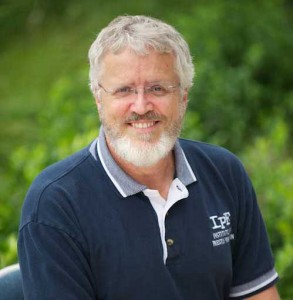 What is the authentic understanding of “intercession” in the context of prayer.  Moses speaks to God as friend.  The invisibility of God  puts deep questions in our hearts.  Unless we have the intimacy of relationship with God in our hearts, our fear will overwhelm our faith.  We also lose patience when waiting for God.  “Waiting” is a dangerous period for human beings; it is literally suffering for us.  The virtue of patience is the remedy.  “Waiting” causes us to run to other diversions…it happens in worship.  “Where are you”  “Are you real?” “Can I believe what is in the Word?” “Please help me.”  If we go deep into our hearts, the content of our waiting becomes the occasion for our intimacy.  But if we just feel the pain of waiting, we will go looking for lost gods.  It comes down to trust.  The role of our memory is so important.
What is the authentic understanding of “intercession” in the context of prayer.  Moses speaks to God as friend.  The invisibility of God  puts deep questions in our hearts.  Unless we have the intimacy of relationship with God in our hearts, our fear will overwhelm our faith.  We also lose patience when waiting for God.  “Waiting” is a dangerous period for human beings; it is literally suffering for us.  The virtue of patience is the remedy.  “Waiting” causes us to run to other diversions…it happens in worship.  “Where are you”  “Are you real?” “Can I believe what is in the Word?” “Please help me.”  If we go deep into our hearts, the content of our waiting becomes the occasion for our intimacy.  But if we just feel the pain of waiting, we will go looking for lost gods.  It comes down to trust.  The role of our memory is so important.
[powerpress]
Deacon James Keating, PhD, the director of Theological Formation for the Institute for Priestly Formation, located at Creighton University, in Omaha. From  Pope Benedict’s 5 audience on prayer:
“Tired of following a path with a God who is invisible now that Moses the mediator has also gone, the people demand a tangible, palpable presence of the Lord and find an accessible god, within the reach of human beings, in Aaron’s molten metal calf. This is a constant temptation on the path of faith: avoiding the divine mystery by building a comprehensible god that corresponds to our own preconceptions and plansâ€.
 For more information on the “Institute of Priestly Formation†and for other material available by Deacon Keating, just click here
For more information on the “Institute of Priestly Formation†and for other material available by Deacon Keating, just click here 
Don’t forget to pickup a copy of “Communion with Christ†, it is one of the best audio sets on prayer…ever!
Check out Deacon Keating’s “Discerning Heart†page
Tags: intercession, intercessory prayer
This entry was posted on Tuesday, December 2nd, 2014 at 2:34 pm
You can follow any responses to this entry through the RSS 2.0 feed.
[powerpress]
St Gregory Nazianzen
The wonder of the Incarnation
The very Son of God, older than the ages, the invisible, the incomprehensible, the incorporeal, the beginning of beginning, the light of light, the fountain of life and immortality, the image of the archetype, the immovable seal, the perfect likeness, the definition and word of the Father: he it is who comes to his own image and takes our nature for the good of our nature, and unites himself to an intelligent soul for the good of my soul, to purify like by like. He takes to himself all that is human, except for sin. He was conceived by the Virgin Mary, who had been first prepared in soul and body by the Spirit; his coming to birth had to be treated with honour, virginity had to receive new honour. He comes forth as God, in the human nature he has taken, one being, made of two contrary elements, flesh and spirit. Spirit gave divinity, flesh received it.
He who makes rich is made poor; he takes on the poverty of my flesh, that I may gain the riches of his divinity. He who is full is made empty; he is emptied for a brief space of his glory, that I may share in his fullness. What is this wealth of goodness? What is this mystery that surrounds me? I received the likeness of God, but failed to keep it. He takes on my flesh, to bring salvation to the image, immortality to the flesh. He enters into a second union with us, a union far more wonderful than the first.
Holiness had to be brought to man by the humanity assumed by one who was God, so that God might overcome the tyrant by force and so deliver us and lead us back to himself through the mediation of his Son. The Son arranged this for the honour of the Father, to whom the Son is clearly obedient in all things.
The Good Shepherd, who lays down his life for the sheep, came in search of the straying sheep to the mountains and hills on which you used to offer sacrifice. When he found it, he took it on the shoulders that bore the wood of the cross, and led it back to the life of heaven.
Christ, the light of all lights, follows John, the lamp that goes before him. The Word of God follows the voice in the wilderness; the bridegroom follows the bridegroom’s friend, who prepares a worthy people for the Lord by cleansing them by water in preparation for the Spirit.
We needed God to take our flesh and die, that we might live. We have died with him, that we may be purified. We have risen again with him, because we have died with him. We have been glorified with him, because we have risen again with him.
Excerpts from the English translation of The Liturgy of the Hours (Four Volumes) © 1974, International Commission on English in the Liturgy Corporation. All rights reserved.
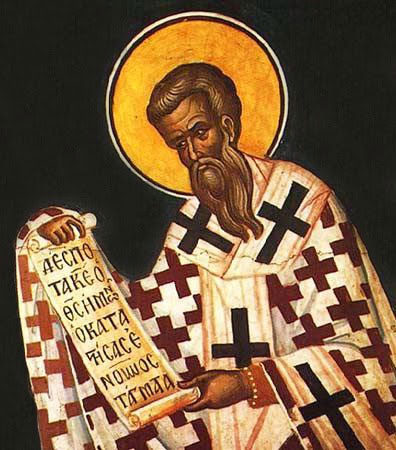
Tags: incarnation
This entry was posted on Tuesday, December 2nd, 2014 at 12:17 pm
You can follow any responses to this entry through the RSS 2.0 feed.
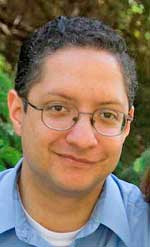
Omar F. A. Gutierrez
Episode 1 – Regnum Novum: Bringing forth the New Evangelization through Catholic Social Teaching with Omar Guiterrez – Introduction and Value # 1 – Jesus Christ
[powerpress]
From episode … 1.     Jesus Christ
You may not believe how many advocates of social justice are only too ready to chuck Jesus out the window in order to get you to buy their plan. One such program of which I’m familiar actually includes materials that deny the divinity of Christ, several times, and deny the salvific work of the cross. As Pope Paul VI and Pope Benedict XVI have said, the Social Doctrine is evangelization. If it is not rooted in the truth, then it can be manipulated to mean whatever one wants it to mean. The truth is quite simply, Jesus Christ who, as Gaudium et spes states, reveals man to himself. The Social Doctrine and the work of charity must stem from an intimate knowledge of Jesus Christ so that they might serve the whole person and point back to Christ.
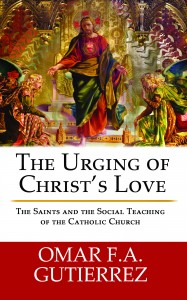 Omar F. A. Guiterrez, M.A. , Special Assistant  to Archbishop George Lucas of the Archdiocese of Omaha.  He’s also the author of “The Urging of Christ’s Love:  The Saints and The Social Teaching of the Catholic”
Omar F. A. Guiterrez, M.A. , Special Assistant  to Archbishop George Lucas of the Archdiocese of Omaha.  He’s also the author of “The Urging of Christ’s Love:  The Saints and The Social Teaching of the Catholic”
Also visit Omar’s “Discerning Hearts” page Catholic Social Teaching 101
This entry was posted on Tuesday, December 2nd, 2014 at 11:46 am
You can follow any responses to this entry through the RSS 2.0 feed.


